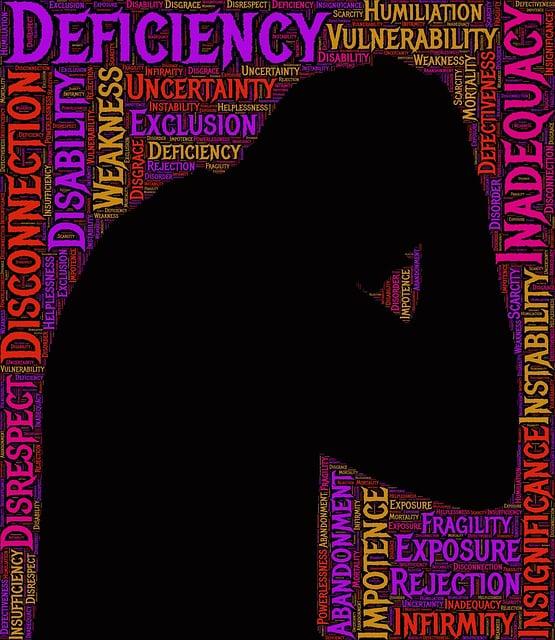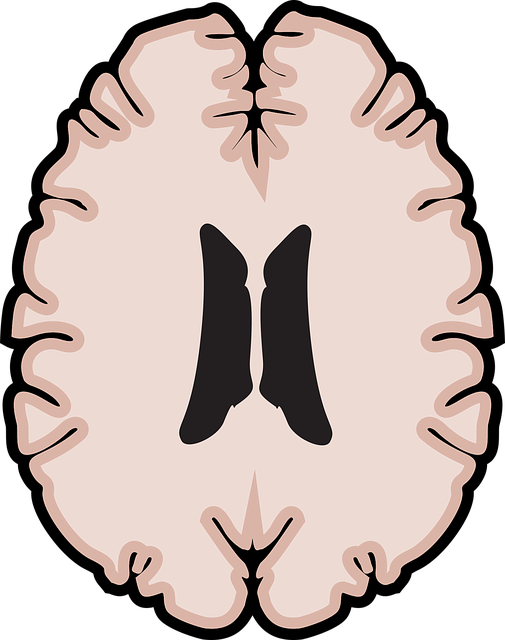Mental health policy analysis involves navigating complex factors like access to care, self-care practices, and wellness coaching. Using structured frameworks, advocates identify gaps and design tailored solutions for diverse community needs. Collaboration among policymakers, healthcare providers, educators, and communities is crucial for effective mental health education and improved outcomes, especially in underserved areas like Louisville Pain Management Therapy (LPMT). LPMT's comprehensive pain management services have reduced anxiety and encouraged self-care habits, demonstrating the impact of policy interventions on mental wellness. Holistic advocacy, combining data insights, stakeholder engagement, and evidence-based practices, pushes for policies enhancing access to quality care, with strategic alliances ensuring longevity and increased public awareness fostering a supportive culture for mental health advocacy.
Mental health policy analysis and advocacy are essential components in navigating complex healthcare systems. This article offers a comprehensive guide, exploring critical aspects such as understanding mental health policy frameworks, the power of advocacy in improving access to care, and examining real-world impacts through a case study on Louisville Pain Management Therapy. We also provide practical strategies for effective policy analysis and advocacy, emphasizing the importance of data-driven approaches and community engagement. By delving into these areas, we aim to empower stakeholders to drive meaningful change in mental healthcare.
- Understanding Mental Health Policy: A Framework for Analysis
- The Role of Advocacy in Shaping Mental Healthcare Access
- Louisville Pain Management Therapy: A Case Study on Policy Impact
- Strategies for Effective Mental Health Policy Analysis and Advocacy
Understanding Mental Health Policy: A Framework for Analysis

Understanding Mental health policy is akin to navigating a complex labyrinth. It involves unraveling intricate web of laws, guidelines, and programs designed to support and promote mental wellness among citizens. At its core, effective policy analysis demands a comprehensive framework that considers various factors – from access to quality care (like Louisville Pain Management Therapy) to the integration of Self-Care Practices and Mental Wellness Coaching Programs Development. By examining these elements within a structured approach, advocates can identify gaps, assess the impact of existing initiatives, and design evidence-based solutions tailored to meet diverse community needs.
This framework should encourage an in-depth look at the social, economic, and cultural determinants of mental health. It must also promote collaboration among stakeholders – policymakers, healthcare providers, educators, and communities themselves. By fostering such partnerships, we can ensure that Mental Health Education Programs Design are culturally sensitive, accessible, and aligned with the unique challenges faced by different populations. Ultimately, this holistic approach paves the way for more effective advocacy, leading to tangible improvements in mental health outcomes for all.
The Role of Advocacy in Shaping Mental Healthcare Access

Advocacy plays a pivotal role in shaping access to mental healthcare, often serving as a catalyst for transformative change. Through passionate and strategic campaigning, advocacy groups can highlight disparities in mental health services, especially in areas like Louisville Pain Management Therapy, where needs may be underserved. By amplifying patient voices and experiences, these efforts ensure that mental healthcare policies reflect the diverse nature of the population they serve.
Emotional intelligence and risk assessment for mental health professionals are key aspects often championed by advocates. They promote the use of evidence-based practices and Mind Over Matter principles to enhance care delivery. This includes advocating for increased funding, improved training for healthcare providers, and the integration of mental health services into primary care settings, ultimately aiming to destigmatize mental illness and ensure equitable access to care.
Louisville Pain Management Therapy: A Case Study on Policy Impact

Louisville Pain Management Therapy serves as a compelling case study illustrating the profound impact that mental health policy can have on community well-being. This initiative, focused on providing accessible and comprehensive pain management services, has significantly contributed to Anxiety Relief among residents. By integrating evidence-based practices and fostering public awareness campaigns development, the program has encouraged individuals to prioritize self-care practices, leading to improved mental health outcomes.
The success of Louisville Pain Management Therapy underscores the importance of policy interventions in addressing mental health challenges. Through strategic partnerships and innovative approaches, such programs can disrupt existing barriers to care, making crucial services more readily available. This case highlights the potential for similar initiatives to replicate and expand, thereby enhancing community resilience and overall public health.
Strategies for Effective Mental Health Policy Analysis and Advocacy

Mental health policy analysis and advocacy require a multi-faceted approach to drive meaningful change. Effective strategies involve gathering comprehensive data on current mental health services, identifying gaps, and understanding the social, economic, and cultural factors influencing mental wellness in communities, including Louisville Pain Management Therapy. By conducting thorough research, engaging with stakeholders, and employing evidence-based practices, advocates can shape policies that promote access to quality care, such as therapy services, and integrate coping skills development and compassion cultivation practices into community health initiatives.
Moreover, building strong alliances with policymakers, healthcare providers, and community organizations is vital for gaining support and ensuring policy sustainability. Leveraging social media, hosting educational events, and sharing success stories can enhance public awareness, fostering a culture of care and understanding that extends beyond Louisville Pain Management Therapy to benefit mental health advocacy at large.
Mental health policy analysis and advocacy are essential components in ensuring equitable access to quality care. By understanding complex policies and leveraging advocacy strategies, such as the successful case of Louisville Pain Management Therapy, we can drive meaningful change. Effective analysis involves a comprehensive framework that considers diverse factors, while advocacy plays a pivotal role in shaping healthcare landscapes. Adopting evidence-based approaches and learning from real-world examples, like the Louisville case, empower stakeholders to navigate challenges and foster positive mental health policy outcomes for all.














